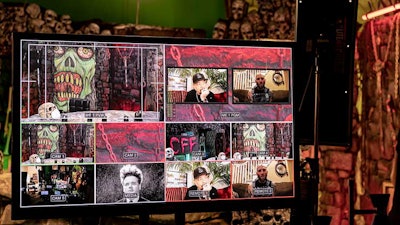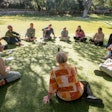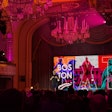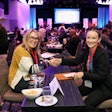
Canceling the Chattanooga Film Festival in April was not going to sit well as a final act for Chris Dortch II, the event’s executive director and lead programmer. The show had to go on—and it did, over Memorial Day weekend, just over one month after its originally scheduled dates.
The result was a virtual festival that could very well be a roadmap for future events. About 30,000 registered attendees were granted exclusive access to see 27 feature-length films and 49 shorts over the course of four days. Microsoft teamed up to host post-film panels and discussions. Celebrity guests included Ice-T and heavy metal band GWAR, as well as filmmakers Alex Winter (The “Bill & Ted” movies.) and Joe Dante (“Gremlins”).
Ultimately, the Chattanooga Film Festival proved to be a show for the Tennessee city and its renowned fiber optic network powered by EPB, a local electric power distribution and telecommunications company. Here, Dortch discusses what went into powering such a large-scale virtual event, and what meeting and convention planners can learn from the film festival.
What were the technical needs to put on the festival?
In regard to specific bandwidth we used or what was required, to be honest, I’m not sure. [The] short film or feature film files, especially HD files, are extremely large, so fast and reliable internet connections were essential to uploading and transferring files to the folks at Mediakind (who built the platform), in addition to Microsoft Azure’s secure cloud storage. On the home front, the folks at EPB have had our back for years as one of our first technology sponsors, and without EPB’s fiber optic network, the time taken to deliver and upload the films would have made our six-week build on this project almost impossible.
How would you see your model playing out in the convention and events fields?
I think this model could work very well for conventions and events, especially when it involves bringing in bigger or more well-known names to those events, as well as getting the conversation going on Twitter about everything. When our attendees couldn’t all meet up in a physical place, they took it upon themselves to come up with the hashtag #chattchat to flag people who wanted to talk about the festival. That in itself was amazing to see, and we think that is a huge part of why the event was so successful.
What were some unique advantages of this year’s virtual format?
Not only did our audience grow, but the largest number of people got to take part in this event in our history. It also meant that short films or films that festivals might only have one or two slots in their schedule to screen got to be seen hundreds of times in a single weekend. We’ve had filmmakers tell us that, in one weekend, their films had been seen more times and logged more on Letterbox’d and film-related social media than they’d seen in a year participating in an on-the-ground festival circuit. It’s hard not to see this as a win for films and filmmakers if you’re a film festival.
We’ve also had distributors come forward and acquire content right out of the festival this year, so it’s proven that filmmakers who feared that this model would prevent them from getting distribution need to consider just how hungry the world is for amazing new films right now, and understand that they have a lot more power than they realize.
Can you speak to how virtual events grant greater accessibility?
I saw and received messages from folks, like film-loving moms who could never make the time to take part in an on-the-ground festival to a number of cinephiles with a disability who could never take part in physical festivals—and had dreamt of attending one for years—getting to have a blast. Our whole ethos at CFF is built on destroying the idea of the “film snob” and making movies fun and accessible to everyone. It’s hard not to feel like going virtual was a big win and allowed CFF to exist on the biggest possible stage we’ve had access to and gave us access to the thing film festivals all want most: more eyeballs.
Is there some worry this model was too successful, meaning it may not make sense to go back to an in-person event?
Our definition of success is that a bunch of good people get access to the works of amazing filmmakers. If our mission is truly to share great films with great people and shine a spotlight on those creating great work independently, then I want to be careful in how I’m thinking about the path forward. I’ll never stop loving or appreciating the theatrical experience or the magic of seeing a great film with a great audience, but I’ll also never stop searching for ways to grow our audience. I truly think it’s only through a mix of on-the-ground and virtual events that we will find the path that feels like the right one for CFF.
Photo Credit: Marco Rota



















